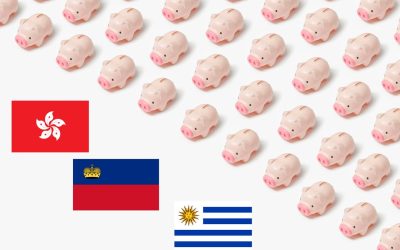Portugal’s Non-Habitual Resident (NHR) system has long been a critical attraction for highly qualified professionals and international businesses, particularly in areas like Madeira. Still, significant changes are ahead, as the NHR government was formally abolished in January 2024. In its stead, the government has launched NHR 2.0, or IFICI (Fiscal Incentive for Scientific Research and Innovation), a new initiative meant to modify and improve the tax benefits accessible to foreign citizens in Madeira and beyond.
Although the NHR 2.0 has been announced, it has not yet been wholly adopted as a vital ministerial order defining the list of “qualified professions” eligible for tax relief is absent. Due to this delay, many possible expats and professionals are unsure about how the new laws will affect their capacity to profit from Portugal’s advantageous tax structure.
NHR in Madeira: A Legacy of Attractive Tax Benefits
Madeira became well-known under the early NHR government as providing unique tax benefits for foreigners, pensioners and digital nomads. The main draw was the option of paying a flat 20% income tax rate for some eligible professions. In contrast, some foreign-sourced income—such as dividends or capital gains—was free from Portuguese taxes under particular criteria. Madeira became a trendy destination for international talent and retirees thanks to this mix of tax reductions and lifestyle advantages.
However, the NHR government came under criticism as it tried to modernize and guarantee the viability of its tax schemes. This period ended with the abolition of NHR as of January 2024; the government soon declared intentions for NHR 2.0 (IFICI).
What is IFICI (NHR 2.0)?
Designed to reduce the scope of the original NHR scheme and match Portugal’s long-term economic goals with tighter eligibility requirements, IFICI—also known as NHR 2.0—is meant to keep providing tax benefits to foreign residents to those engaged in highly skilled professions.
Although Parliament has already approved the program’s specifics, critical ministerial regulation is still pending, which means applying to NHR 2.0 is still impossible. The Portuguese government aims to complete the list of approved professions as soon as possible, and it is already evident that it wants to attract specialists in fields vital for economic growth. As such, the new NHR 2.0 is supposed to target fields that include technology, engineering, healthcare, and scientific research.
Critical Implications for Expats in Madeira
For expats currently residing in or considering a move to Madeira, the transition from NHR to IFICI has important implications. While the original NHR program may no longer be available for new applicants, those who had secured NHR status before January 2024 or through the existing grandfathering rules can continue to benefit from the program until their 10-year period expires.
IFICI will be the route for new candidates to receive tax benefits; the specifics are unknown until the pertinent ordinance is released. These are some salient factors:
- Qualified Professions: The list of professions eligible for tax relief under IFICI is still under review. This list will play a critical role in determining who can access the benefits of the new regime, focusing on industries vital to Portugal’s economy, such as tech, medicine, and engineering.
- Flat Tax Rate: Under IFICI, a 20% flat income tax rate will apply to those in qualified professions. However, adjustments to the rate or the eligibility criteria could be introduced to ensure the program is more targeted.
- Foreign Income Exemptions: One of the major appeals of the NHR program was the exemption on certain types of foreign income, such as dividends or capital gains. The IFICI will maintain these exemptions but exclude pensioners.
Waiting for the Ministerial Ordinance
Professionals planning Madeira as their future location are anxious about the delay in adopting the ministerial ordinance, bringing IFICI into operation. Expats and foreign professionals are in a holding pattern until this ordinance is issued, as the new laws controlling their tax situation have not yet been clearly stated.
Still, professionals considering relocation to Madeira should have hope, as the government’s declared goal is to keep the area appealing to highly educated people and foreign investors. Portugal’s more significant attempts to remain competitive in the global talent market depend on IFICI’s adoption, which also guarantees that the tax system is more sustainable in the long run.
Looking Ahead: NHR 2.0 and its Potential
Madeira is projected to remain a leading location for foreign professionals looking for tax and lifestyle benefits even while the specifics of IFICI remain unresolved. Madeira keeps providing an attractive mix of work-life balance with its breathtaking scenery, strategic position, and contemporary infrastructure.
Clarifying the specifics of NHR 2.0 (IFFI) after the ministerial decree is released would help professionals take advantage of the new program’s advantages. For anybody hoping to make Madeira their home, remaining updated about the developments and preparing for the new government’s ultimate implementation will be vital.
NHR Madeira: The Conclusion
The discontinuation of the NHR program in January 2024 and the forthcoming application of IFICI (NHR 2.0) point to a significant change in Portugal’s tax policy for foreign citizens. Madeira will likely remain a sought-after destination for expats and professionals looking for advantageous tax treatment in a stunning and crucial European environment, even if questions persist, particularly on eligible professions and certain tax exemptions.
Prospective residents should monitor Portuguese government updates, especially the publication of the ministerial order, to ensure they fully grasp the scope of the IFICI advantages. Madeira’s tax advantages have a bright future even as regulations change to suit a global economy.
The information in this article on “NHR Madeira” is for general informational purposes only and is not intended to constitute legal advice. While every effort has been made to ensure the accuracy of the content, laws and legal procedures can change, and the specifics of each case can vary widely. Therefore, readers are advised to consult a qualified professional or attorney in Portugal for advice tailored to their circumstances before taking action. This article does not create an attorney-client relationship between the reader, the authors, or the publishers. The authors and publishers are not liable for any actions taken or not taken based on the content of this article.
The founding of Madeira Corporate Services dates back to 1996. MCS started as a corporate service provider in the Madeira International Business Center and rapidly became a leading management company… Read more




